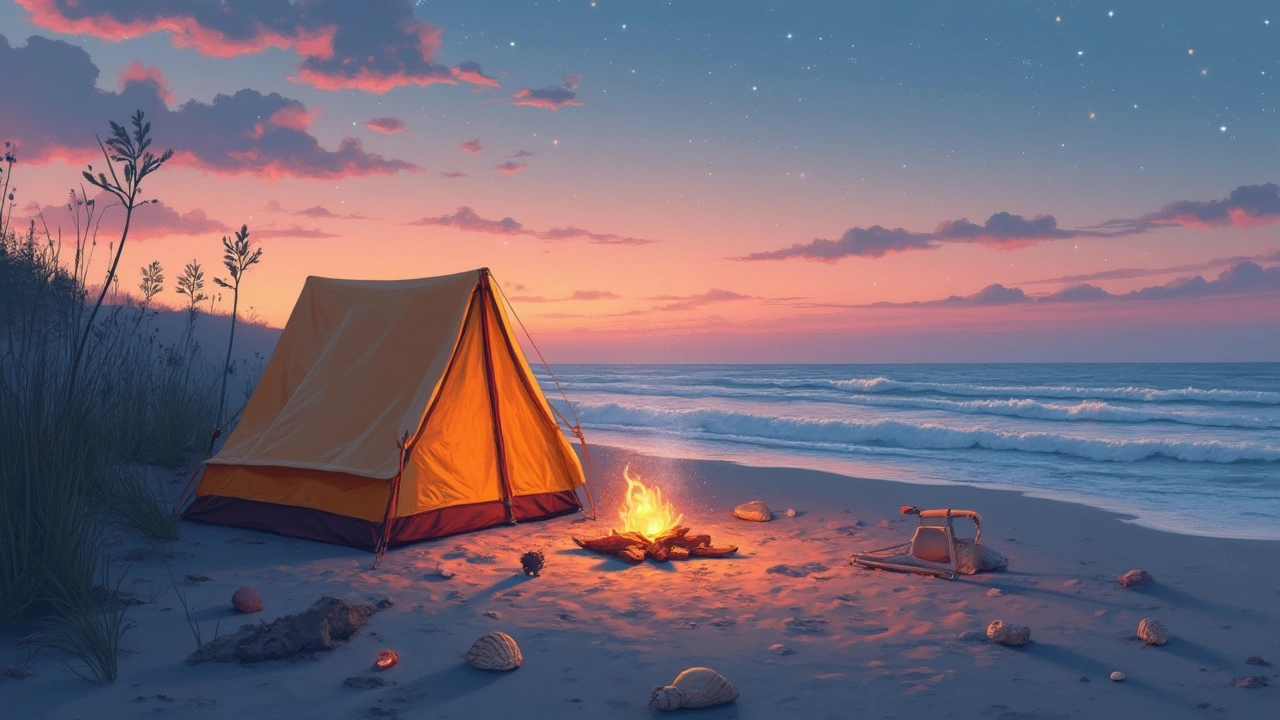Sleep on the Beach – What You Need to Know Before You Pitch Your Tent
Ever dreamed of hearing waves roll over you while you drift off? Turning that dream into a real night under the stars is easier than you think, but you need to know a few basics first. This guide breaks down the key things you should check – the rules, the safety gear, and the places that actually let you stay.
Legal side: where can you really camp on a beach?
In the UK most shoreline is public land, but local councils often ban overnight stays to protect the environment. Look for signs that say "no camping" or "restricted area" – ignore them and you could get a fine. Some coastal towns do allow a single night if you follow a set of simple steps: arrive before sunset, keep your site tidy, and leave before sunrise.
If you’re heading abroad, the rules change fast. In California you can park a camper or car on many beaches, but you still need to check municipal parking limits and any special permits. Places like Tybee Island in Georgia have strict rules about where tents are allowed, so a quick phone call to the local authority can save you a ticket.
Gear up for a safe night on the sand
Sleeping on sand means you need a solid base. A lightweight foam pad works well under a sleeping bag, and a compact tarp keeps moisture out. Bring a portable lantern or headlamp – bright enough to set up but not so bright it wakes the neighbors.
Security matters too. Keep your valuables in a lockable bag and store it inside your vehicle if you have one. A simple rope lock on your tent can deter opportunistic theft without adding weight.
Weather can change fast by the sea. Pack a windbreaker, a waterproof blanket, and a hat to protect against wind chill. If the tide is coming in, make sure your spot is above the high‑water line – a quick walk along the water’s edge will show you the safe zone.
Finally, respect the environment. Pack out everything you bring in, and use a small shovel to flatten your sleeping area before you leave. Leaving no trace keeps the beach beautiful for the next camper.
With these basics in mind, you’re ready to find a spot. In the UK, look at places like Whitstable, St. Ives, or the remote beaches of Cornwall where local councils offer designated overnight zones. In the US, check out free beach camping in California’s hidden coves or the car‑friendly spots on Carolina Beach. Each location has its own quirks, but the core steps stay the same: know the law, bring the right gear, and leave the place cleaner than you found it.
Now grab your sleeping bag, map your route, and get ready to fall asleep to the sound of surf. There’s nothing quite like a night on the beach to reset your mind and make a road‑trip memory that sticks.
-
 VIEW POST
VIEW POSTWhere to Sleep on the Beach in South Carolina: A Guide to Beachside Campgrounds
Mar, 20 2025|0 CommentsWhen it comes to camping by the sea, South Carolina offers some stunning beachside spots. Whether you want a spot with amenities or a more rustic experience, there's a place for every camper. Sleeping on the beach can be a unique experience if you know the right places to go. Check out some insider tips and discover campsites where you can enjoy the sounds of the ocean as you drift off. Get ready for a beach campout you'll always remember.